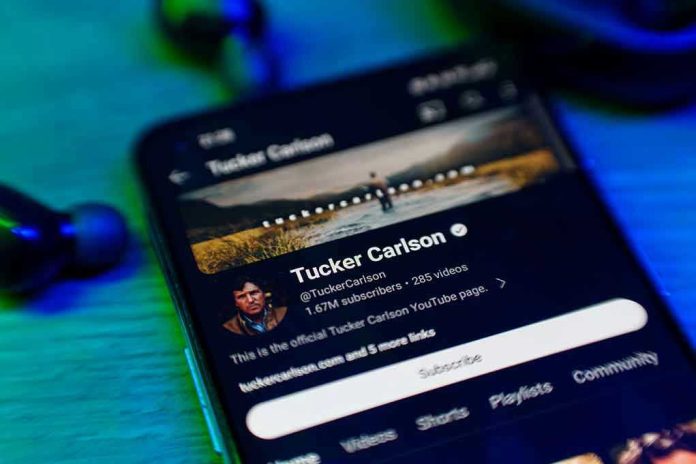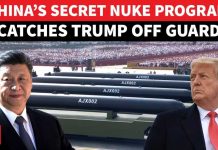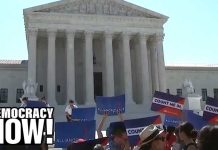
When a media firebrand publicly accuses the FBI of lying about a presidential assassination attempt, the fault lines of trust and power erupt—and suddenly, everyone’s asking who really controls the truth.
Story Snapshot
- Tucker Carlson claims the FBI is covering up online activity following the Trump assassination attempt.
- The FBI quickly refutes Carlson’s accusations, insisting Crooks had no significant online footprint.
- Congress launches hearings into security failures and agency transparency at the rally.
- The controversy intensifies public distrust and scrutiny of law enforcement ahead of the 2024 election.
How a Presidential Rally Became Ground Zero for America’s Trust Crisis
On July 13, 2024, the Butler, Pennsylvania rally for Donald Trump exploded from political theater into a national security nightmare. Thomas Crooks, a 20-year-old with an AR-15, attempted to assassinate the president before being killed by Secret Service counter-snipers. Within twenty-four hours, federal agencies released statements to reassure a rattled public: Crooks supposedly had no significant online presence, no digital trail of premeditation, no clues to motive lurking in cyberspace.
But the official calm didn’t last. Only days later, Tucker Carlson, the ex-Fox News host turned media provocateur, leveled a public accusation: the FBI, he claimed, was actively covering up Crooks’ digital history. Carlson insisted the agency’s assertion of “no online footprint” was not just incomplete—it was deceptive, part of a larger pattern of federal opacity in politically charged incidents. The FBI fired back, dismissing Carlson’s claims and defending its investigative transparency in a rare, direct rebuttal.
The FBI vs. Tucker Carlson: A Battle Over Narrative and Credibility
The standoff between Carlson and the FBI instantly became a lightning rod for the broader crisis in American institutional trust. For years, federal agencies have struggled to maintain credibility amid political polarization, especially when tasked with protecting high-profile political targets. The Secret Service and FBI, once regarded as the last lines of defense against chaos, now face mounting skepticism not just from the public, but from powerful media voices determined to challenge their every finding.
Congress wasted no time. Hearings convened within days, with Secret Service Director Kimberly Cheatle testifying about security lapses and accepting responsibility for failures. Congressional oversight committees demanded answers on how Crooks managed to access the rally perimeter, why existing protocols failed, and whether federal agencies were forthcoming about the shooter’s background. The hearings exposed the fragile balance between agency accountability and the need for public reassurance in an era of instant information and rampant conspiracy.
Media, Transparency, and the Politicization of Security Failures
Media coverage amplified the controversy, with Carlson’s claims fueling a wave of partisan commentary. Conservative voices rallied behind his demand for transparency, arguing that federal agencies have grown too comfortable in the shadows, insulated from real scrutiny. Agency officials and some lawmakers, however, pushed back—defending the integrity of investigations and warning against the dangers of politicizing security failures. As the debate raged, the public was left to sift through a deluge of conflicting narratives, each colored by the ideological lens of its source.
Security experts highlighted systemic failures in event protection and called for urgent reforms. Media analysts noted the growing influence of alternative media in shaping public perceptions of official investigations, while political scientists warned of the corrosive effects of eroding institutional trust. Congressional testimony and agency statements became battlegrounds for competing versions of the truth, cross-referenced and dissected by journalists, lawmakers, and citizens alike.
Long Shadows: The Impact and What Comes Next
The immediate aftermath of the Trump assassination attempt and ensuing controversy has laid bare the deep fissures in American society. Short-term, federal security protocols face unprecedented scrutiny, with likely reforms in both Secret Service and FBI transparency practices. Long-term, the incident threatens to further politicize law enforcement, intensify partisan media narratives, and heighten public anxiety about political violence. For political candidates and public figures, the stakes have never been higher. Law enforcement agencies must now navigate not only the technical challenges of protection, but the perilous terrain of public opinion and media skepticism.
As investigations continue, some contradictions remain unresolved. The FBI’s insistence on Crooks’ lack of online footprint stands in direct opposition to Carlson’s cover-up claim—a discrepancy that congressional hearings and independent media investigations have yet to settle. While agency officials maintain their commitment to transparency, the absence of definitive evidence to substantiate Carlson’s allegations means the debate is far from over. For now, the story serves as a stark reminder: in the age of media spectacle and political polarization, the truth is always contested—and trust, once lost, is hard to regain.
Sources:
Congressional Record, House Oversight Hearing



